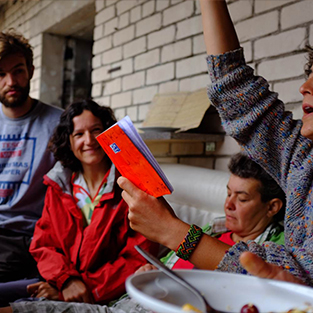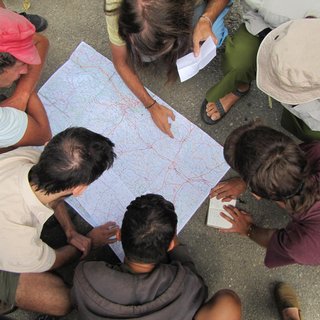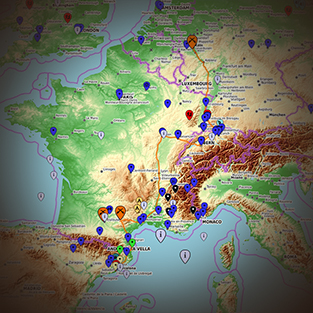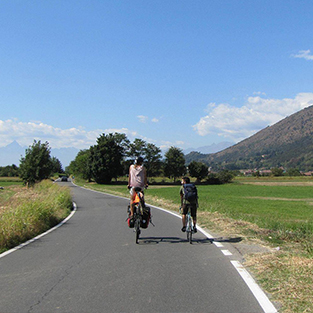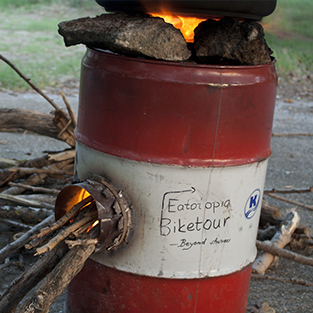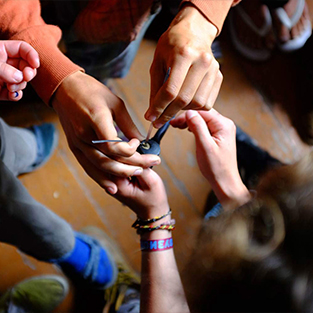About
We try to make the tour as inclusive as possible for any level of fitness or experience with bike touring. We cycle a maximum of 30–70 km per day (depending on the hills), and on average half of the days we stay in a place without cycling. Our experience is that almost everyone can manage this, but there is the possibility to shorten the distances if we discover that it is too much. People cycle in small groups or alone, at whatever speed suits them, and many people like to take it slow and take lots of breaks. A detailed route plan for the day is shared in the morning, arrows are drawn with chalk on the road at every turn, and if you get lost you can always call the Biketour phone. If you have a shitty bike, you will not be the only one, and we enjoy supporting each other if something breaks. We make sure that the last people to leave carry a toolbox, a phone and a first-aid kit in order to assist if anything goes wrong on the road.
Read more about what the Ecotopia Biketour is. If you would like to get an insight into the organisation or just ask a question, contact us.
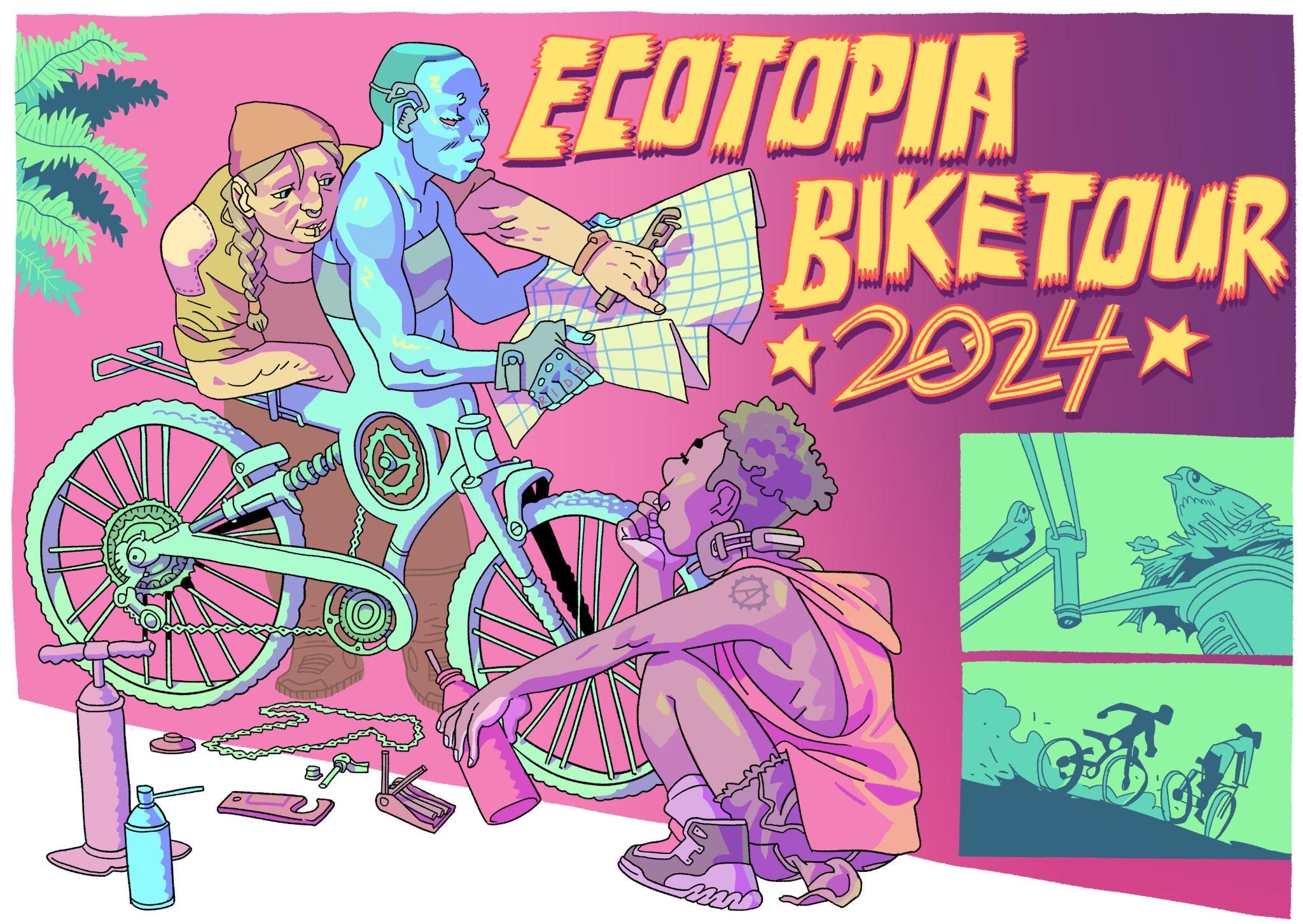
Latest blog posts
Beyond Borders: On film in Hungarian
In Novi Sad we met up with a film crew for the local Hungarian language TV, and here are the results! The first 7:30min relate to the Beyond Borders biketour: For those that don’t speak Hungarian, in the clip we talk about the history of Ecotopia Biketour, this year´s beyond borders theme, how we organise and also our route. Novi Sad is in the Vojvodina region, where there are several minority languages including Hungarian. In the clip they also mention the sections of our biketour which pass through other regions with Hungarian speaking minorities, such as the last leg of…
Anti Car Dogs, Military Tunnels and Serbian TV… Biketour in Novi Sad
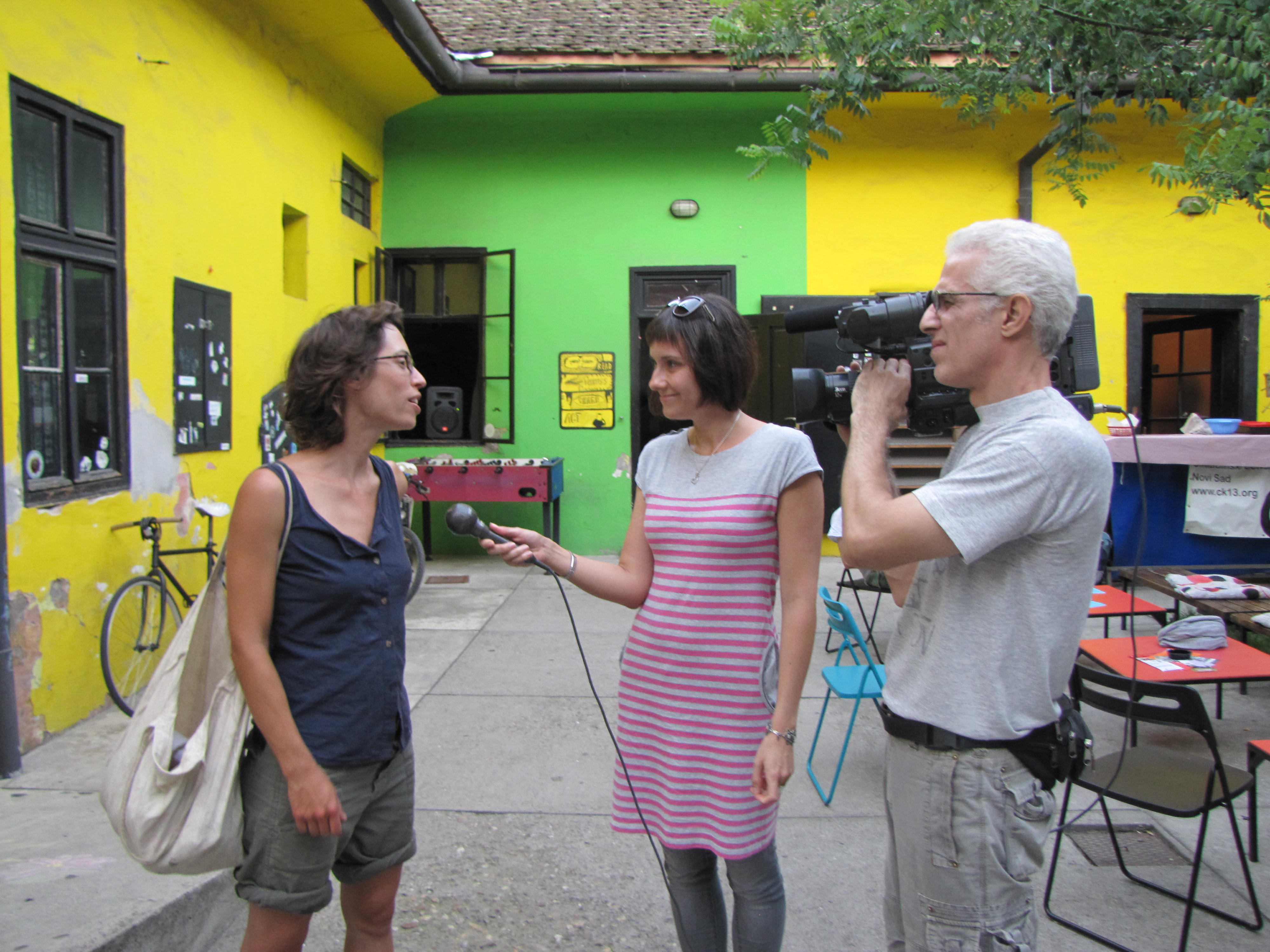
The following day we followed the Danube all the way to Novi Sad just in time for the 3rd year anniversary event of CK13, a social centre for arts, culture and politics, run voluntarily by some of our local hosts with a cafe, workshop spaces an anarchist info shop, and a regular people’s kitchen. The evening’s theme was Veganism, Environmental Activism and Animal Rights. We watched a number of short films including Hrana za život (Food for Life) and Proždirući zemlju (Devour the Earth) and a speech by Phillip Wollen, subtitled in Serbian, on ‘Why animals should be off the…
Ecotopia Biketour Beyond Borders Video
(Vimeo link) Check out this beautiful video made during our kick off days in Berlin by the wonderful Claudia! … Subtitles available in German / Untertitel jetzt auch auf Deutsch: Download here/hier! (Video von vimeo runterladen und auf Computer speichern. Dasselbe mit der Untertitel-Datei. Video mit VLC-Player öffnen. Untertiteldatei auswählen. Abspielen!)
Vukovar’s alphabet wars are all in the signs

En route to Novi Sad we heard about the protests in Vukovar, (or Вуковар as the Serbian population would want it to be referred to) that had recently erupted over a longstanding dispute about minority language, that led to the newly erected Cyrillic signs being torn down from public buildings and three days of rallies and protests.*Protest image from this BBC News article. Since the 2011 census in Vukovar, it was recorded that the population of Serbians in the Croatian town had exceeded one third, which was the ‘legal’ requirement to have bilingual signs in both the Latin (Croatian), and…






